
14 minute read
Two Universities, One Goal
TWO UNIVERSITIES, ONE GOAL Haskell and KU both work hard toward a more sustainable environment for students, faculty and staff.
As thought leaders in the Lawrence community, Haskell Indian Nations University and the University of Kansas (KU) are taking strides to build more sustainable campuses and communities. With faculty, staff and students at each institution interested in sustainable practices, bringing energy and coalitions together can be a challenge for both. Despite this similarity of purpose, the practical application and implementation of sustainability differs significantly in terms of scale. With 28,500 students and 400 various degree and certificate programs, KU consumes massive amounts of energy to keep its residence and academic halls functioning for students, faculty and staff. Add to that the energy necessary to run state-of-the-art research facilities, and one can see the challenges for Jeff Severin, director of the Center for Sustainability, and its three-person staff. Haskell, on the other hand, serves just under 1,000 students and offers four bachelor’s degree programs along with a number of associate and certificate programs. A residential university, Haskell houses students from across Indian Country, less than 10% living off campus. Yet, despite its small size, Bill Welton, adjunct instructor and project director of several grants, and a few other faculty, staff and students committed to creating a more sustainable campus are trying to create a more sustainable infrastructure to maintain the efforts. A teaching university serving a 100-percent indigenous student body, many of Welton’s efforts are aligned with the academic goals of the university, in particular the environmental science program. His office was created to “manage by Joshua Falleaf, photos bt Steven Hertzog
Advertisement
initiatives that provided experiential learning opportunities for students in sustainability,” according to its previous USDA-NIFA (National Institute of Food and Agriculture) equity grant proposal. For the most recent cycle of the grant, the emphasis is on “developing student leaders who will drive sustainability programs forward” in an effort to create a more significant presence and stability for sustainable initiatives. Under the leadership of Daniel Wildcat, Ph.D., the Tribal ecoAmbassadors program brings classroom teaching into real-world application. Two primary initiatives, food waste reduction and landscaping/habitat restoration, were supported by project-based learning activities in classes from the environmental science, indigenous and American Indian studies, and business programs. For instance, some Tribal ecoAmbassadors are concurrently enrolled in AIS 301, Native and Western Views of Nature. In the class, they learn that the efforts of ecoAmbassadors reflect many North American indigenous worldviews, philosophies and cultural practices as they contrast with western approaches that now have made sustainable practices more necessary than ever. Former Tribal ecoAmbassador Shane Lynch says, “It was nice that it was driven by students,” adding that “more publicity” and “more accessibility” are important to keep the momentum going. An emphasis on getting the word out about sustainability is just as important at KU, despite the significant difference in scale. “One of the things we’re working on,” Severin explains, “is how do we do a better job of telling the story of sustainability at KU, because a lot of folks don’t even know that we exist?” Previous chancellor Bernadette Gray-Little


believed in the goals of KU’s Center for Sustainability, com- missioning a 75-page plan called “Building Sustainable Tra- ditions: University of Kansas Campus Sustainability Plan” (2016) and stating, “We must elevate the expectations we have for ourselves as a community—finding ways to maxi- mize the benefits of the work we do at KU while minimizing any financial, environmental and societal costs.” Severin, who began the position as director of the Center in 2007, explains: “When we talk about sustainability here, we’re talking about it in terms of how do we protect our nat- ural ecosystems, promote economic prosperity and treat all people with equity and respect?” One of many signature achievements of the partnerships across KU’s campus is the Prairie Acre. After being unat- tended for some years, this “unplowed, native prairie rem- nant” caught the attention of students, and in 2014, a senior student in professor Kelly Kindscher’s environmental stud- ies capstone course took it up as a project. The process of restoration has been ongoing ever since through the mean- ingful collaboration of the KU Center for Sustainability, the Environmental Studies Program and the Kansas Biological Survey. “Classes like that have always been a part of the work that


‘We abuse land because we regard it as a commo- dity belonging to us. When we see land as a community to which we belong, we may begin to use it with love and respect.
’– Aldo Leopold
we do through our Center,” Severin says. “They will often have a group of students, if not multiple groups of students, looking at some campus issue. And, historically, we’ve tried to integrate some of that into the work that we do.” At Haskell, Welton and his team of sustainable partners are also focused on the people involved, particularly students and the tribal nations in the region. Working with Kansas State University, the Prairie Band Potawatomi Nation and the Kansas Kickapoo Tribe on their gardening initiatives, the Douglas County Master Gardener program is focused on “what plants we can encourage those tribal communities to grow” that do not require excess quantities of water, Welton says. “Both are in food deserts, typical for reservations,” he adds, so the research efforts students perform at the Haskell Research Garden is very helpful in creating a more sustainable local food system to support the citizens of those two nations. In alignment with Haskell’s mission, a larger aim is to “build the leadership capacity of our students … to address the needs of indigenous communities.” Through partnerships with area tribal nations and the tribal students engaged, the passion and expertise in sustainable practices, while different for each university, clearly translate into students’ impact on families and communities after graduation. In November 2018, KU partnered with Westar Energy to


ensure the majority of its energy comes from wind, a renewable source that is bolstered by the construction of Soldier Creek Wind Farm, in Nemaha County. This construction is due to be completed by the end of 2020. “[KU] will be purchasing the equivalent of our energy consumption in wind power,” Severin says. “That’s a pretty big step when thinking about our campus and the greenhouse gases that we’re responsible for.” He adds, “That doesn’t mean that we shouldn’t also continue to decrease the amount of energy that we’re using.” There are two factors impacting these two local educational institutions: investment of the heart and planning. Transitioning between student groups and changing administrations over the years makes momentum difficult to build. “One semester there will be a lot of interest depending on the students,” Welton says. “Then, the next semester, you don’t hear anything.” Actionable items with determined outcomes, as well as the resources to fulfill them, are critical for each university. In the meantime, students, faculty and staff do their best to communicate the critical need to shift paradigms to create a more sustainable future for both universities. p
Aaron Combs










• Agility, Speed, and Power Training • Injury Prevention / Pre Habilitation • 1 on 1 , Couples, Small Group Training • Athletic Strength Development • By Appt Only Isaac Combs
• ART (Active Release techniques) • MYK (Myokinesthetics) • Sports Massage & Bodywork • Cupping 4910 Wakarusa Ct, suite A • Lawrence KS 66047 • (785) 766-0763
2020 FOUNDATION AWARDS photos by Jeff Burkhead

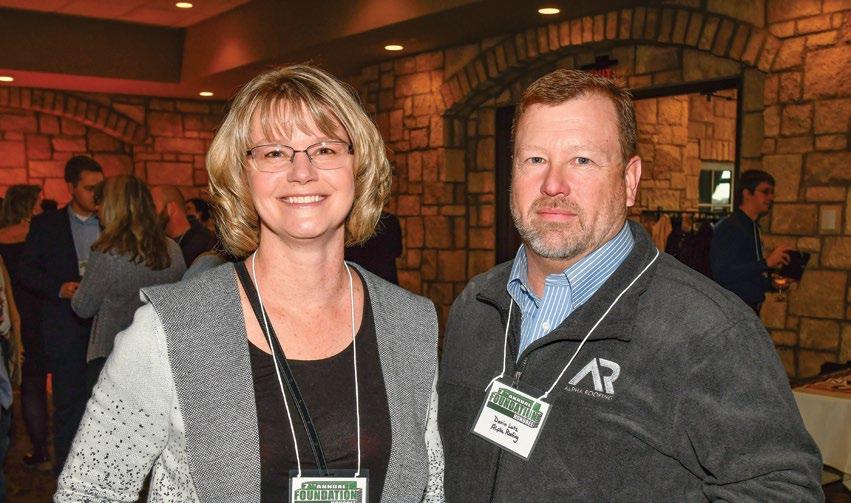


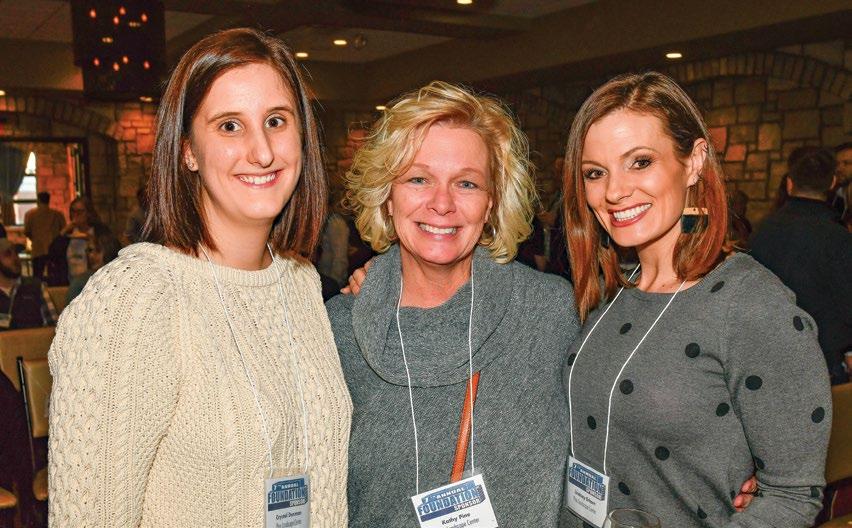

THE LOCAL SCENE [ ]
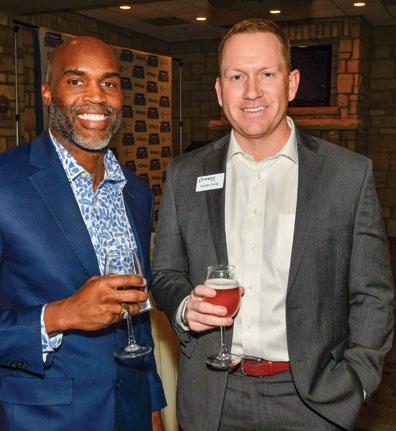









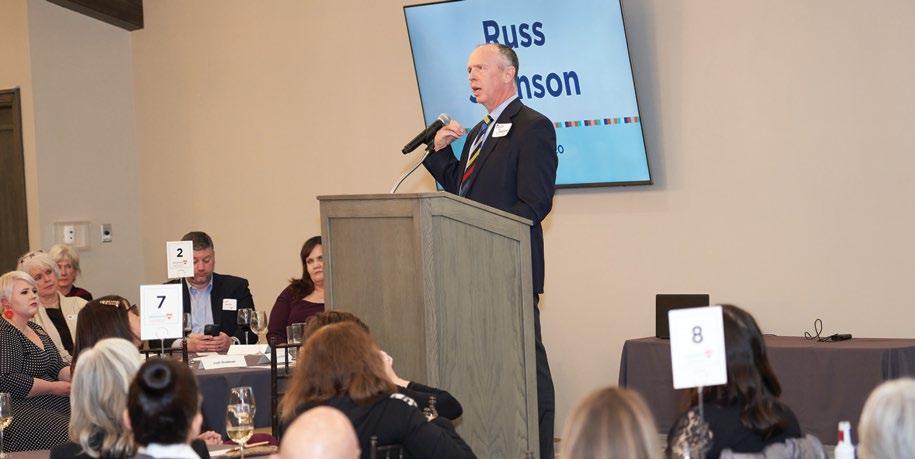


THE LOCAL SCENE [ ]
LAWRENCE CHAMBER ANNUAL MEETING photos by Gaskins Photography Collections

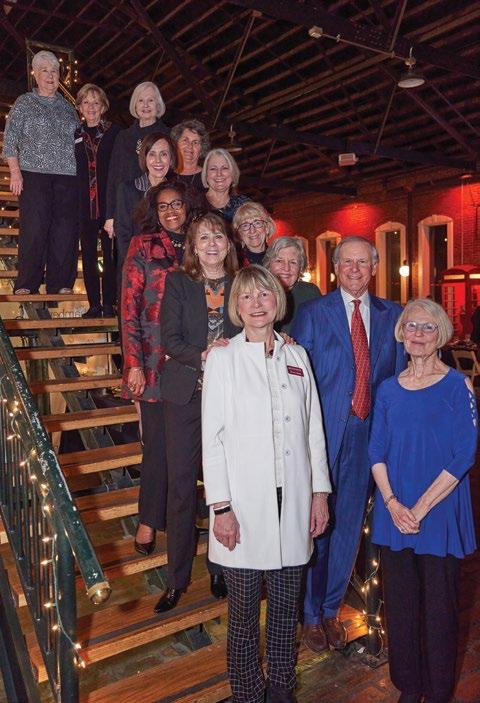







THE LOCAL SCENE [ ]

THE CHAMBER LEGISLATIVE PRIORITIES BREAKFAST


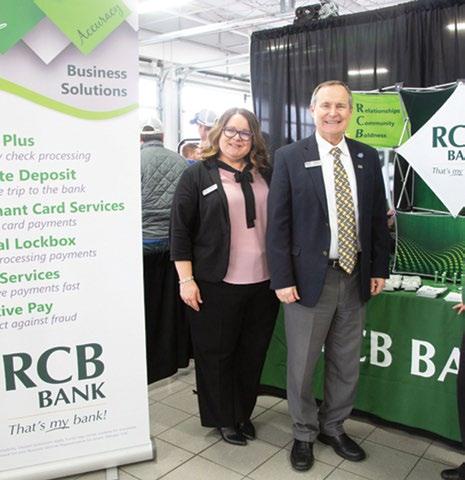








PINE LANDSCAPE OUTDOOR CONNECTIONS EXPO








Katie Whitenight joined The Trust Company of Kansas (TCK) in January 2020 with a background in nonprofit fund development. She’ll be working closely with Christopher M. English, Senior Vice President & Trust Officer and Daniel P. Brogren, Vice President & Trust Officer. Katie is excited to be part of the TCK team and is looking forward to serving our clients as a Receptionist/Office Assistant in our Lawrence market. About The Trust Company of Kansas The Trust Company of Kansas, headquartered in Wichita, with staffed offices in Arkansas City, Hutchinson, Lawrence, Leavenworth, and McPherson, and services offered to many community banks throughout the state of Kansas, is comprised of 10 certified trust and financial advisors, as well as many other experienced financial professionals. Key services include retirement and trust planning, risk assessment, investment management, gift planning, business succession planning, and more. A wide range of individuals seek the advice and services of The Trust Company of Kansas team and rely on their expertise to navigate the often-burdensome waters of wealth management. Advisors at The Trust Company of Kansas collaborate with these individuals, families, and foundations to discuss their goals, assess unique financial circumstances, and establish and implement forward looking action plans that minimize those burdens, bestowing the freedom to enjoy everything else.

Michelle Fales joins RCB Bank in Lawrence RCB Bank welcomes Michelle Fales as a mortgage loan originator to our Lawrence community. A lifelong Kansan, Michelle grew up on a farm outside Nortonville, Kansas, and moved to the Lawrence community 34 years ago. She has worked in the banking industry for more than 20 years, including experience with the Kansas State Bank Commissioner. Her industry accolades include 2008 Consumer Lender of the Year and 2010 Commercial Lender of the Year. She has also won multiple awards for her volunteer service to her local community. Outside of work, Michelle serves on the boards of the following organizations: Junior Achievement of Kansas; Cottonwood, Inc. Foundation; Sister Cities Lawrence; and the State of Kansas Real Estate Appraisers Board. She also volunteers on The Children’s Shelter Festival of Trees, Cottonwood’s Salute Events, and Leadership Lawrence Social Service Day planning committees. She enjoys reading, volunteering and spending time with her husband and two dogs. She also enjoys traveling to Chicago to see their son, Adam, who is pursuing a Ph.D. at the University of Chicago.
Good Energy Solutions Welcomes Malcolm Proudfit, CFO/COO Good Energy Solutions is pleased to announce that Malcolm Proudfit of Lawrence, KS will join the Good Energy Solutions team as Chief Financial and Operations Officer. Malcolm will help the organization with strategic business decisions and planning to help the company continue on its current path of business growth. Education plus experience in Economics, Finance, and a Masters Degree in Business Administration all contribute to Malcolm’s ability to help grow Good Energy Solutions. Kevin Good, Owner, said: “Malcolm comes from a family of entrepreneurs, has solar experience, and is well connected in the solar industry. He already has intimate knowledge of solar financials, solar sales, PV systems, solar modeling tools, and financing products.,, I’m very enthusiastic about the positive influence he will bring to our organization.” Good Energy Solutions has seen continued growth in the last few years by expanding the residential solar market into Missouri and focusing more on Commercial projects both in solar and electrical. “Together we are helping to change our region of the country, leading the charge to reduce fossil fuel use and helping customers to make their own clean energy and have their electrical needs satisfied with stellar service and care. And as we grow, we can help even more customers by leveraging our expertise and commitment to integrity as an organization,” said Good.

Sunrise Project Has Been Awarded a Solar Energy System from Good Energy Solution’s 2020 Solar Giveaway Program

81 Good Energy Solutions, in partnership with the sun, is pleased to announce that Sunrise Project, a non-profit organization in Douglas County, KS, will be the recipient of a solar photovoltaic system. Good Energy Solutions, Inc., a Lawrence-based solar energy and electrical services company, will donate and install the solar electric system as part of the Good Energy Solutions’ “Solar Giveaway” program. “We are excited to install a 3 kilowatt solar electric system on the property of the Sunrise Project to help the organization reduce their energy costs. The system can also be used as an educational experience for their learning community to understand the benefits of solar and its contribution to a cleaner/healthier environment,” says Shana Good of Good Energy Solutions. “The organization’s building/property is suited well for solar, and this gift will assist Sunrise Project to lower their electric use by more than 4,000 kilowatt hours per year,” says Kevin Good, Owner of Good Energy Solutions. “This is a gift that keeps on giving!”
WHOSE DESK?

Be the first to correctly guess which local business figure works behind this desk. Winner receives a $50 gift card to 23rd Street Brewery. facebook.com/lawrencebusinessmagazine











